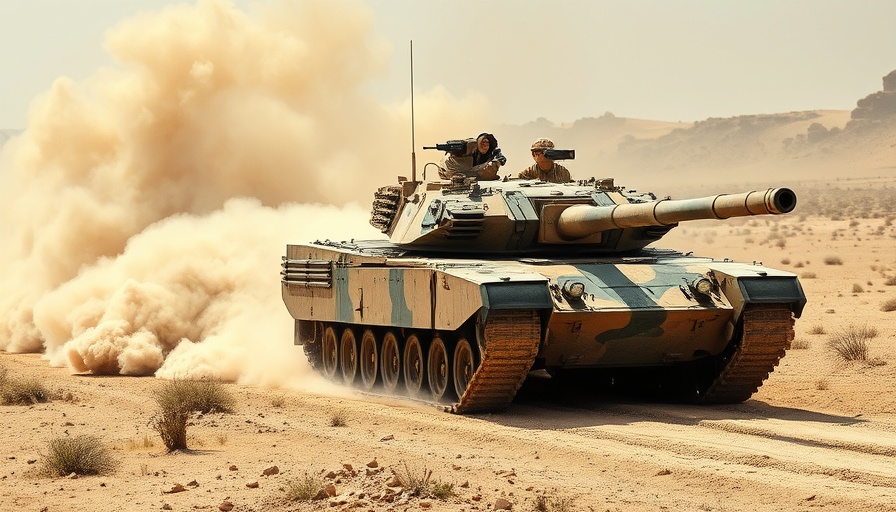
Escalation Amid Ceasefire: What It Means for Gaza
On May 18, 2025, amidst ongoing discussions for a ceasefire, Israel announced a significant escalation of its military operations in the Gaza Strip. This action reflects a complex interplay of military strategy and humanitarian concern as the country seeks to pressure Hamas while addressing the dire situation for civilians trapped in the conflict zone.
The Dynamics of the Israeli Military Advancement
The Israeli military stated that extensive ground operations were launched throughout both the northern and southern regions of Gaza. The intent is to both militarily weaken Hamas and pressure them into a more favorable negotiation position concerning ceasefire terms. This advancement appears to be part of a broader strategy to reclaim territory within Gaza, effectively altering the operational landscape.
Consideration for Humanitarian Needs
In an unexpected shift, Israeli officials also announced they would allow limited humanitarian aid to enter Gaza. This decision comes after 11 weeks of total blockade, where food and essential supplies were halted as part of a tactic aimed at compelling Hamas to agree to an extension of a previous ceasefire. President Trump previously highlighted the urgent need to avert famine conditions in Gaza, following reports from military officials warning of impending starvation among the Palestinian population.
Complexity of Aid Distribution
While the allowance of aid is a welcomed change, details on how this assistance will be delivered remain murky. Plans for an American-backed distribution system are under development, intended to bypass Hamas control. The challenge lies in establishing a transparent and effective mechanism to ensure aid reaches those in need without enabling further military actions from Hamas.
Future Predictions and Impacts on the Ground
The ongoing military operation coupled with the resumption of aid signals a challenging time ahead for Gaza’s population. Analysts predict that continued military pressure might lead to heightened tensions on the ground, potentially exacerbating humanitarian crises if the combat operations intensify. Civilian casualties could escalate, further complicating international perceptions and responses to the conflict.
Counterarguments and Diverse Perspectives
Many humanitarian advocates criticize the Israeli strategy, arguing that heightened military operations could undermine any genuine progress towards peace. They contend that a military focus will not resolve the underlying political issues and could devolve into a cycle of retaliation and further violence. This perspective highlights the need for a balanced approach that prioritizes dialogue alongside military pressure.
The Relevance of International Involvement
As the situation evolves, the role of international actors becomes crucial. With the U.S. actively involved in discussions, outcomes will undoubtedly hinge on how effectively external parties can mediate between Israel and Hamas. Proactive engagement from global leaders may offer potential pathways to a more lasting resolution that respects the complexities of both sides' positions.
In conclusion, as Israel adjusts its military approach while attempting to address urgent humanitarian needs, the implications for Gaza are profound. Observers will be closely monitoring the situation not only for developments in military operations but also for genuine progress in the humanitarian crisis that continues to unfold. Taking a comprehensive approach seems vital to prevent further escalation and to foster a climate conducive to peace negotiations.
 Add Row
Add Row  Add
Add 




 Add Row
Add Row  Add
Add 

Write A Comment